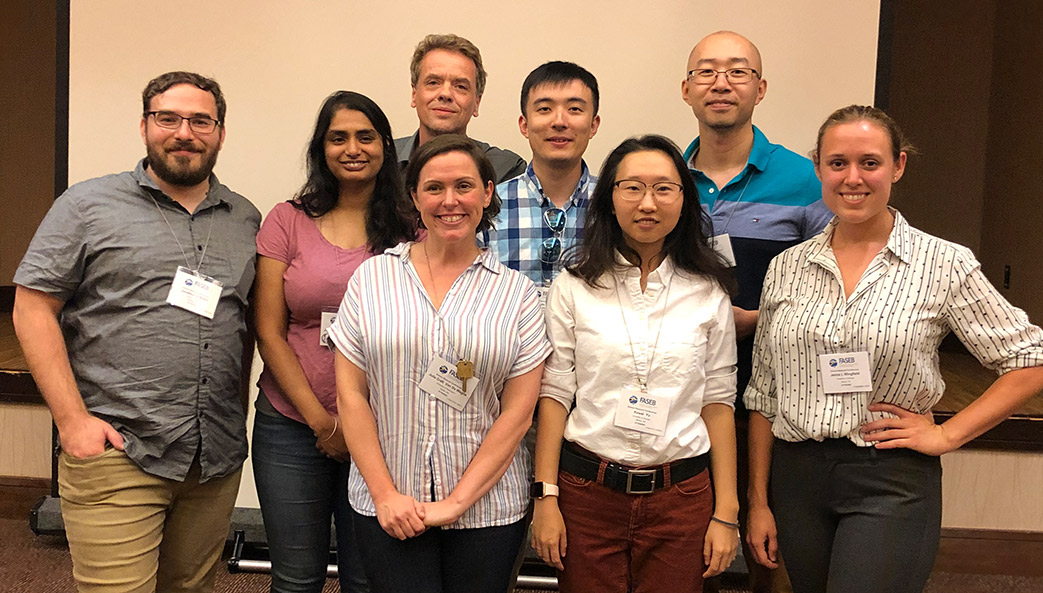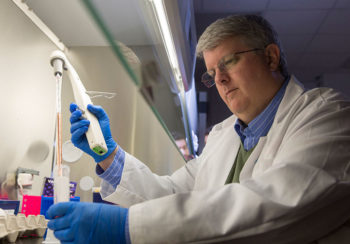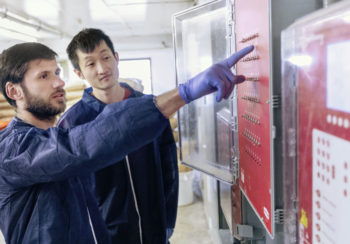Many scientists who study the biology of rare diseases may not get the chance to meet a patient affected by those diseases. However, UGA researchers who study ciliopathies—rare diseases and disorders related to tiny cell structures called cilia—attended a conference devoted to cilia research and had a chance to see firsthand the potential impact of their work.
On Aug. 4, the Federation of American Societies for Experimental Biology (FASEB) held its 2019 conference on the biology of cilia and flagella in Snowmass, Colorado. The four-day event was co-organized by Karl Lechtreck, associate professor of cellular biology, and supported in part by the UGA Office of Research.
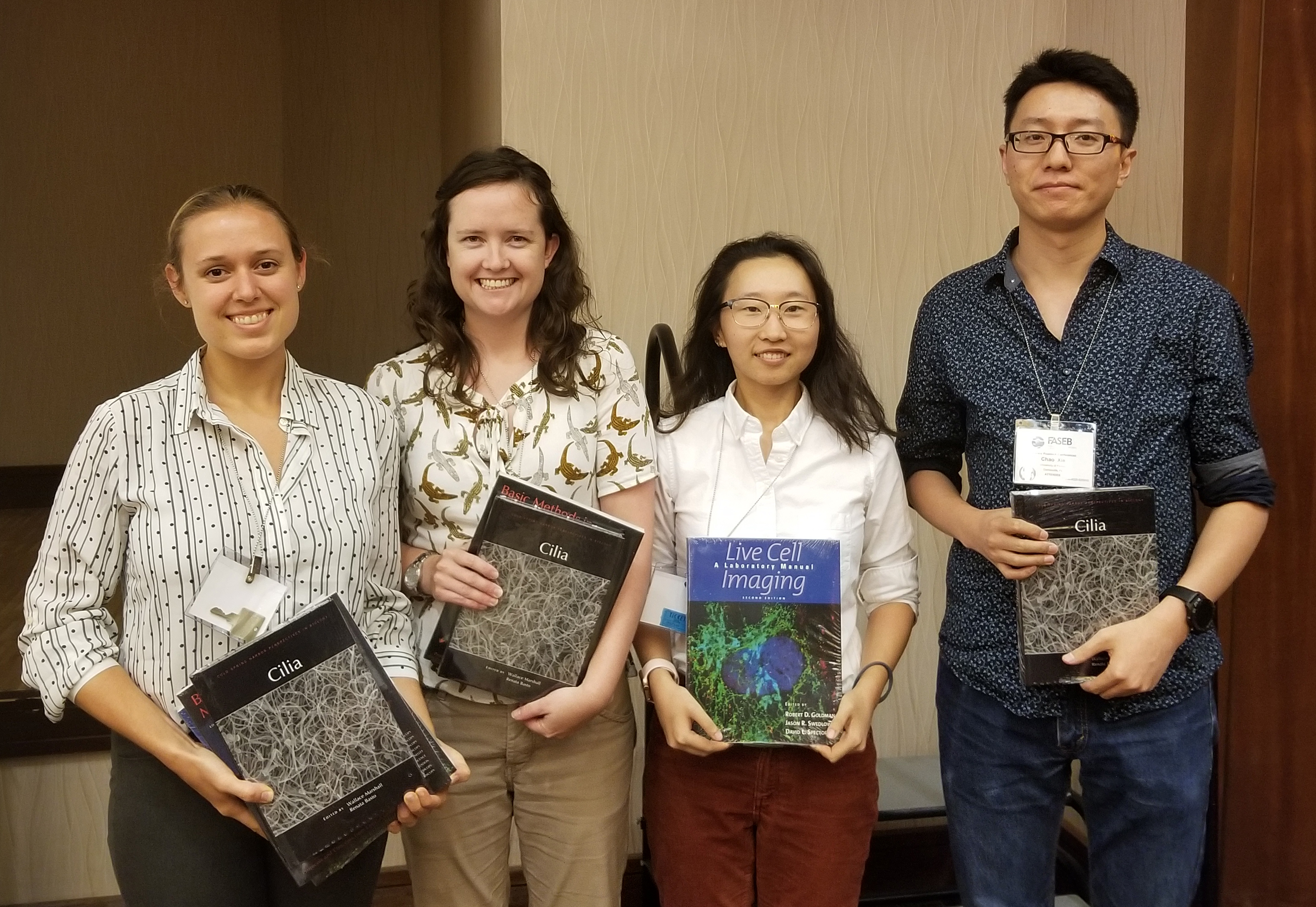
Cilia and flagella are tiny, whip-like cell structures that serve different functions. They are present on most cells in the human body. In the kidney ducts, cilia sense the flow of fluids, and in the airways they help remove mucus and bacteria. Because cilia play a central role in how cells sense their environment, they are sometimes referred to as “cellular antennae.”
Due to their wide distribution, it’s not surprising that a number of diseases and disorders are caused by cilia dysfunction. Such diseases include Bardet Biedl syndrome, which causes loss of vision during childhood and puberty, obesity, kidney anomalies and polydactyly (extra fingers and toes). BBS is considered a rare condition, estimated to affect less than one in every hundred thousand people in Europe and North America, but the nature of the symptoms—seen in multiple organs including the eyes, kidneys and bones—leads scientists to focus on studying the hair-like cellular structures whose dysfunction can cause the disease.
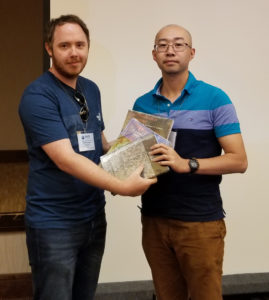
The FASEB conference brought together scientists, physician scientists and families of BBS patients. Many attending scientists had never before met a person affected by BBS. After the scientific sessions, the meeting ended with special talks attended by patients and their families, followed by a joint dinner and evening social.
Tim Odgren, president of the Bardet Biedl Syndrome Foundation, described the process patients and their families live through, which is often characterized by early misdiagnoses. Once BBS is properly diagnosed, patients often feel the isolation of having to cope with such a rare condition. Because research into extremely rare conditions such as BBS is often not pursued by large companies, most work in this field is carried out in university labs. Cilia are not exclusive to humans and animals, and scientists use other organisms such as mice, zebrafish and squid to understand the biology underlying disease and to, one day, open venues for a cure.
Several students in the Lechtreck lab received awards at the FASEB conference. Peiwei Liu, a postdoctoral research associate, received the first place award for oral presentations in the postdoc category, while graduate students Jenna Wingfield and Kewei Yu won the first and third place poster awards among graduate students, respectively.



